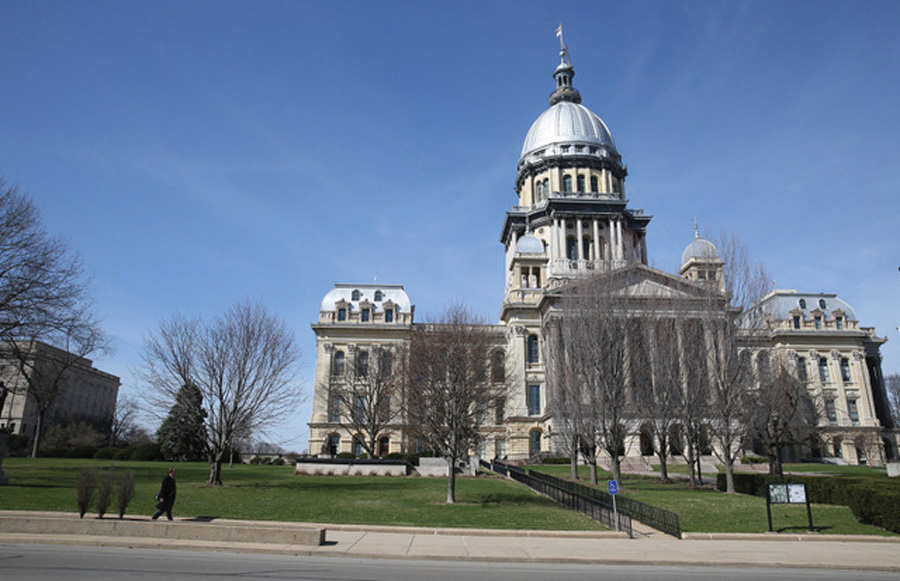Evanston residents and students oppose change in Daylight Saving Time
John J. Kim/Chicago Tribune/TNS
The Illinois State Capitol on March 9, 2017, in Springfield, Illinois. The Illinois State Senate passed a bill last week that would make Daylight Saving Time the permanent standard, meaning clocks wouldn’t “fall back” in the fall.
November 21, 2019
In the Evanston winter, every hour of sun counts. But in an effort to standardize time, an Illinois Senate bill would make Daylight Saving Time permanent, lengthening days.
The bill amends the Time Standardization Act to keep Daylight Saving Time permanently. This would mean clocks would “spring forward” in March 2020, but would not “fall back” in November. In 2021, Illinois would not have either time change, making Daylight Savings permanent.
Evanston representative State Sen. Laura Fine (D-Glenview) voted for the change, and state Sen. Heather Steans (D-Evanston) did not vote. The bill is currently in review in the Illinois House of Representatives, but it can’t go into effect until the federal government implements changes with Daylight Saving Time.
Daylight Saving, the time change in March, moves the clocks forward an hour, meaning the sun rises and sets later in the summer. If Illinois decides to stop switching back the clocks in the fall, the sun will set later in the day.
The bill came from a group of students at Carlinville High School who created a project for civics class, group member Travis Osborn said. Osborn focused on the health issues sparked by the time change.
Feinberg Prof. Sabra Margaret Abbott, who studies circadian rhythm sleep-wake disorders, said the time changes in both spring and fall impact the body’s internal clock. In ideal conditions, bodies can adjust to the time change in about a day, but, in the real world, Abbott said people see lingering effects of daylight savings for up to a week.
The spring time change is harder than the fall because people have to get up earlier, Abbott said. The spring change also means that people generally lose an hour of sleep because their body’s internal clocks won’t let them sleep in later.
“Almost everybody ends up sleep deprived in the spring,” Abbott said.
Abbott added that sleep deprivation can lead to a decrease in productivity at work, an increase in heart attacks and an increase in car accidents.
To combat some of these issues, Abbott has patients with circadian disorders begin adapting to the time change up to a month in advance. She argues it’s good that the government is considering getting rid of the time changes.
State sen. Andy Manar (D-Bunker Hill), the primary sponsor of the bill, said in a statement that he supports the proposal because of the decline in productivity caused by time changes and the health and safety concerns. He added that the Carlinville students deserved recognition in Springfield.
“What’s most important is that this group is setting an example for how young people can step up and engage their elected officials to enact changes they want to see in government,” Manar said in a statement.
A previous version of this story included both statements and quotes from sources that mischaracterized what the effect of the Illinois Senate bill would be. The bill would make Daylight Saving Time permanent, lengthening days. The Daily regrets the errors.
Email: [email protected]


